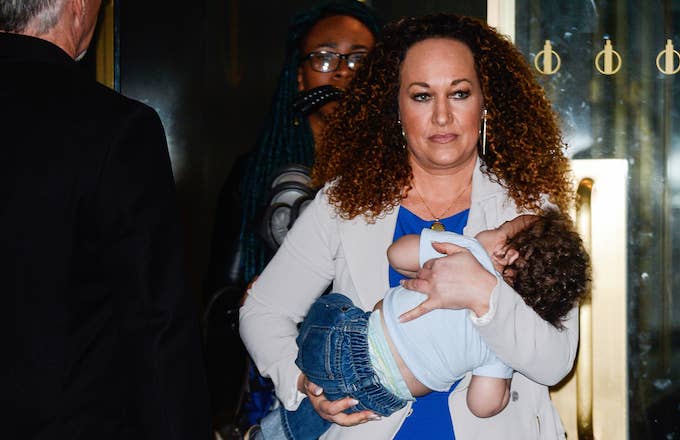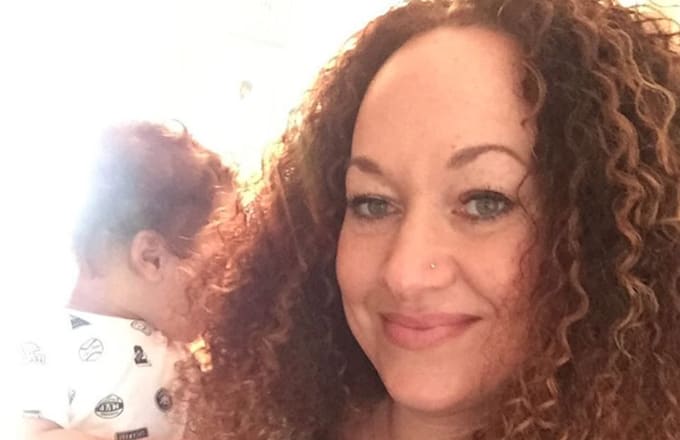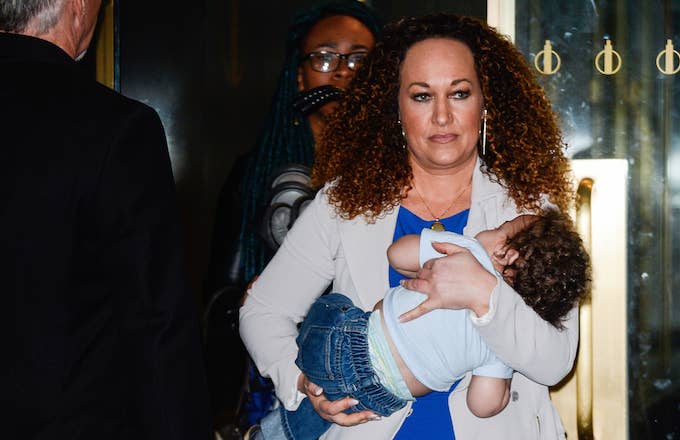
The thought of boycotting Netflix was laughable when comedian Mo’Nique called for one after the streaming platform made an offer for a potential comedy special that she found insulting. No one was jumping on that bandwagon, but the company’s latest move might make a few folks consider it...or at least take a hard pass. On Wednesday, the trailer was released for The Rachel Divide, a documentary premiering April 27 that shows just how hard life has been for Rachel Dolezal since she came out as “trans-racial.”
It begs the question: Netflix, WYD?
By now, the story of Dolezal is well-known: In 2015, she was president of the NAACP branch in Spokane, Washington, and chair of the city’s police ombudsman commission. Amid investigation into a laundry list of hate crimes that were allegedly committed against her, but suspiciously never substantiated, it was discovered that Dolezal was actually a white woman passing as black. She resigned from her position with the NAACP, the nation’s oldest civil rights organization, and became a divisive public figure when she coined the term “trans-black,” which she defined as being biologically Caucasian but identifying racially as African-American.
Listen, I understand that Netflix needs some provocative programming with word that Disney is going to pull all its content in 2019 for a streaming service of their own, which would leave a large hole in their library. And they need to gain new subscribers to drive growth. Why else would they plan to spend $8 billion on 700 original films and shows this year? From a business perspective, The Rachel Divide makes perfect sense! It’ll be a train wreck people can’t help but gawk at. At the end of the day, this is a numbers game, and hate-watching still counts in the final tally. (Just look at Bright.)
But there is irony in elevating the voice of a “trans-black woman” while devaluing black female storytellers like Mo’Nique and Wanda Sykes, (who says she was low-balled as well). It also illustrates that Dolezal can darken her skin all she wants, but it won’t change the fact that she has access to a privilege the people she emulates could never dream of.
Keeping up the ruse of victimhood at her family's expense seems especially cruel once you consider she is the cause of her own destruction.
Dolezal is a curious character, but the trailer is painful to watch. She was followed by filmmakers for two years in the aftermath of her sudden infamy, and we see it wearing thin on her teenage son. He pleads with her to go quietly into the night, reminding his mother that she is not the only person affected by the attention. Dolezal insists she has to proceed with her memoir and documentary because, “When something gets destroyed you have to rebuild it.” It’s a selfish conceit that she must sacrifice her kids for her own redemption. Keeping up the ruse of victimhood at her family’s expense seems especially cruel once you consider that she is the cause of her own destruction.
The way Rachel co-opted the language of the transgender community to justify her cultural appropriation only widens the swath of her offense. She previously grounded her entitlement to use the term trans by conflating that “it’s very similar, in so far as: this is a category I’m born into, but this is really how I feel.” She went on to say that racial identity is more fluid than gender identity because “it wasn’t even biological to begin with. It was always a social construct.”

And that sounds cool, Rach, but then why perform blackface of the Kardashian variety to assume this identity? As The Guardian wrote, “[Dolezal] sunbathed, styled her hair into braids or dreadlocks or weaves, and applied bronzer when her tan faded.” I’m no psychologist, but the fact that her mind makes these kinds of leaps speaks to a deeper mental issue she should be addressing rather than trying to rebuild her image.
Laura Brownson, the director of The Rachel Divide, explained to Vulture that, “In making the film, I came to a deeper understanding of the raw nerve that Rachel hits in our society, but I also learned that her motivations to identify as she does are far more complicated than most realize. Regardless of how people feel about Rachel, I hope the film will challenge audiences to think more deeply about race and identity in America.”
Laura, honey, we’ve already hit our challenge quota. We have to deal with Donald Trump and his MAGA acolytes, and people who are actually marginalized are fighting battles with life-or-death consequences. I can’t imagine Dolezal being the vessel who makes us all come to Jesus.
It made me want to vomit to see Dolezal, choking back tears in the trailer while claiming, “I’m putting my kids out there. It’s hard.” Girl, bye! No one believes the choice was difficult; this is a desperate woman with nothing to lose. Or maybe she’s misunderstood. Or delusional. Or a pioneer in race relations! Chances are, plenty of people will tune in to find out. But I for one just wish she’d take her dashiki and go.


